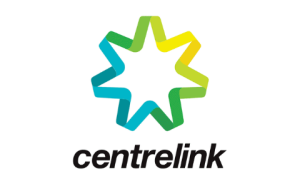July 2018
Saving for retirement when you have dependants
Supporting your dependants doesn’t have to come at the expense of building your retirement nest egg.
Preparing for retirement can be difficult for parents who have dependent children to support. They may find themselves torn between saving for retirement and setting aside money for their children’s education or other needs. Even adult children ask their parents for financial help; one survey found that more than half of Australians aged 18 to 35 borrow regularly from their parents, including to get help with big purchases or university fees.
However, you don’t have to sacrifice building a retirement fund while supporting your children. There are ways to build a sufficient nest egg while helping or providing for your dependants.
Saving for your golden years
Forced saving can be your good ally in building your retirement fund. Voluntary contributions to your superannuation through salary sacrifice may help boost your nest egg. It may also help you reduce the amount of income tax you pay. Including your employer’s super guarantee contribution, you can make concessional super contributions of up to $25,000 each financial year. The government will tax your salary-sacrificed contributions at 15 per cent, which could be much lower than your marginal tax rate.
It may also be worth looking at how and where your super fund invests your money. Choosing a different investment option or type of risk may help you earn better returns and grow your super.
Super can be a difficult subject to get your head around. It may help to speak to your adviser about how you can boost your super by making voluntary contributions or changing your investment option or level of risk. Your adviser can also take you through the tax implications of voluntarily contributing to your super.
Outside of super, there are options that may help you save for retirement, such as buying an investment bond or investing in a managed fund. You should seek advice before you decide if these options might work for you.
Protecting your income
While building your fund for old age and supporting your dependants, it’s important to make sure you are protected against the risk of losing your current income. A sudden illness or injury can keep you from working and earning the income you need to provide for your dependants and save for your retirement. Taking out income protection insurance is a wise precaution against such illness or injury. If something happens, this policy may provide you a monthly income to support you and your family during your recovery and help you stay on track with your financial commitments.
It is also critical to ensure your dependants are looked after if you die or become seriously ill or disabled. A life insurance policy may pay a specified amount to your beneficiaries when you die, offering a financial buffer even though you’re no longer around to provide for them. You may want to consider adding total and permanent disability cover to your life insurance in case you’re unable to work due to a permanent disability. The policy may provide a lump sum to help you defray the costs of rehabilitation and cover your family’s living expenses if you became totally and permanently disabled.
Adding trauma insurance to your life cover can also protect you and your dependants from financial hardship if you are diagnosed with an illness or injury that is covered by the policy. Trauma cover may provide a lump sum benefit or equivalent instalments to help you pay for medical and living expenses while you recover.
Get professional advice
Making financial decisions for your retirement while supporting or providing for your dependants can be tough. But you don’t have to do it alone. Your adviser can help you assess your current situation and develop a strategy to support your dependants while building a nest egg for a comfortable retirement.







